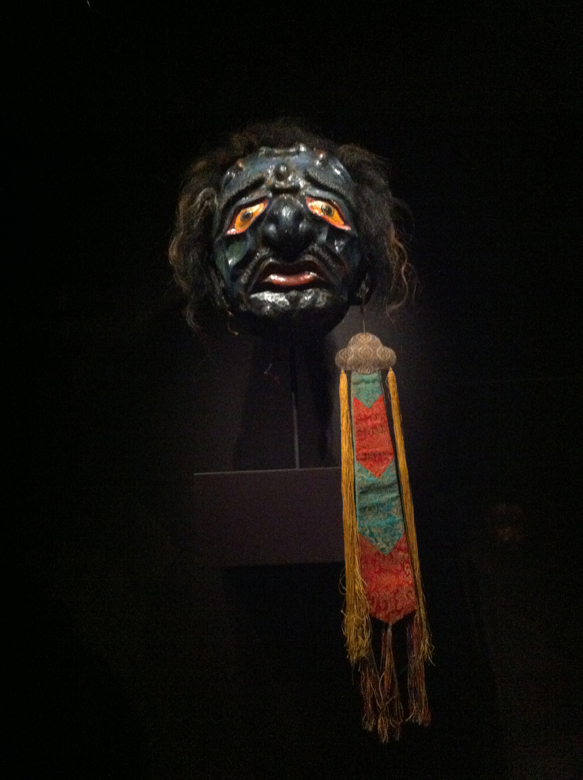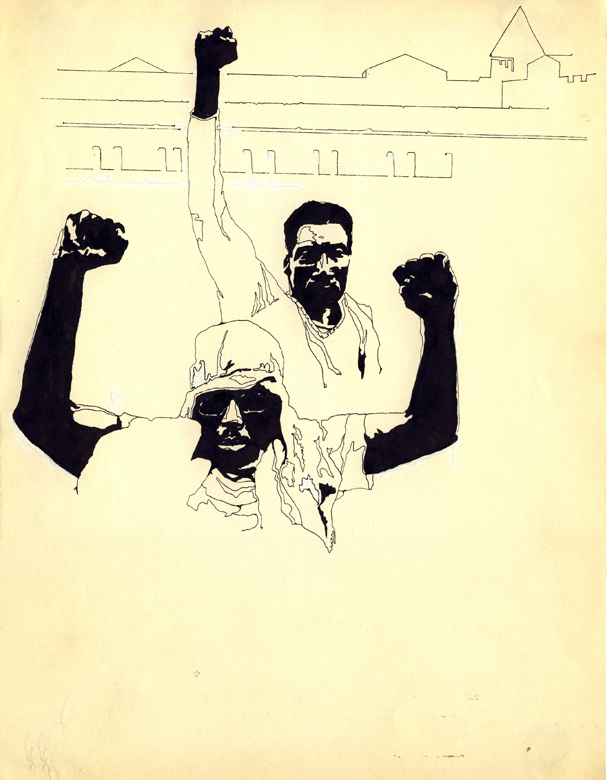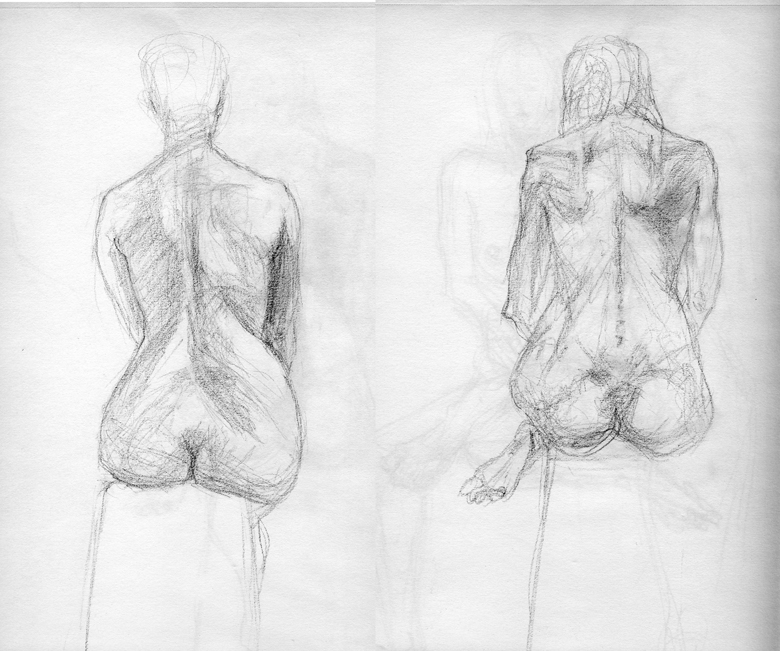C
My life up till now, and I’m almost sixty-five, has been a struggle to figure out what’s me and what isn’t. Not easy, since I keep changing and so does the world. Nothing’s going to change my world, sang Lennon. But that’s a plea, not a description of reality. “God grant me the serenity to accept the things I cannot change, the courage to change the things I can, and the wisdom to know the difference.” So runs the AA Prayer, learned not at my father’s knee so much as sitting on the chair next to him at Perry Street meeting. Well, God, serenity, courage and wisdom notwithstanding, I couldn’t change him. At least not in the ways I wanted to. But a whole element invisible and impalpable in that prayer is the nature of change. My father certainly changed in the decades I knew him. How much of that change was “caused” by me? Were his changes really attributable to a cause or set of causes? If so, how directly were the causes causal? As causal as insects becoming dormant when the ground gets cool enough? As causal as ice melting as the earth and atmosphere heat up?
Where am I going with this? Well, soon, I’m going back into the earth and heavens with what constitutes my material self, which, for the moment seems to consist of a pivot for regulating “in” and “out,” and a kind of chamber or vessel for retaining what was once outside and now lives indoors, and for flushing inside things out into the world. The evidence of this seems plain: I breathe, and every time I do, the outside and inside execute their elaborate dance, as Samvara unites with Vajravarahi – there are a thousand allusions.
On the way here, I saw four blossoming pear trees, a dogwood and a magnolia agreeing with me. I could tell because they leaned in my direction. Ah, sang Donovan, but I may as well try and catch the wind.
Wicker works hard to convince Governor Rockefeller to come to Attica and meet with the observers, first and foremost because it would “indicate to the inmates how much the governor… cared about their fate and that of all the hostages…”
He assumes that Rockefeller does care about the inmates and hostage, and also that he has an overriding interest in “negotiating a peaceful settlement” to the standoff. It is this bone deep naïveté that makes Wicker such an interesting paradox and so problematic a writer. He is, in the end, a wish-driven American who, in the face of a stunning array of evidence, digs in his heels and refuses to do the math. For all our oft-expressed respect for the “bottom line,” we have yet to begin an accounting. We are, thus, and perhaps incurably, “inaccountable.”
“Wicker thought he could foresee another good result, but he did not know how to state it without offending Rockefeller. He already had told the governor that tensions and frustrations among the troopers and corrections officers would increase the violence of the attacks. He wanted the governor to come to Attica so that he could see and sense for himself the building mood of hatred, the eagerness to shoot… The governor had to come to Attica to understand the threat of bloodshed in its full dimension.” [Wicker, ATTD, pp. 215]
Wicker seems not to have considered, or else has suppressed, structural fact that however much “tension,” “anger,” and “frustration,” might be building among the massed state troopers and corrections officers, they could not launch an attack to retake the prison autonomously or spontaneously. The order would have to come from the man he was talking to at that moment. Wicker simply could not wrap his mind around political reality long enough to cognate something as simple as a chain of command. A governor governs, a trooper troops.
In another age, Tom Wicker would have stared through a telescope at the moons of Jupiter and proclaimed them impossible since they had not been mentioned by Aristotle.

Beverly has a really hip friend, this big funny-looking houndlike dog that’s been hanging around here. They rag each other, nibble at eachother’s jowls and fight over bones. They’re incredibly playful together. He’s tried to fuck her several times, but he’s not too persistent, probably because he’s fairly young. I think he may be stray, he’s thin and we’ve been feeding him occasionally, though our bread is very low, and he seems to be really hungry.
He’s come for rides in the camper and goes wading when we swim. They look beautiful running together and seem to be very attached to eachother.
At quiet moments they lie on the ground and, no kidding, put their paws around eachother.
Tentatively, his name is Biotec, because that’s all that’s written on his tag. He is starting to answer to the name now, but I’m pretty sure it’s the name of a vaccination. It fits him rather well, however. Beverly and Biotec sound right together. [Journal note, July 18, 1970, Berkeley, CA]
Morning nei gong on the street just down from Tarallucci.
He (one of a pair, contemptuously): “Only in New York!”
Five minutes. Then,
She (gushingly): “Beautiful!”
Take the referendum you prefer, and walk with it
On the sidewalks of the city: the spectacle of white people trying to be nice.
An i for an iPhone
It’s nobody’s asphalt
They tell me Billie Joe McAllister jumped off the Tallahatchie Bridge.
But I don’t believe them…
Rocky goes to Attica in the same manner as elephants fly.
For the Wickers of the world, it isn’t only Dumbo, no – any elephant can fly. If they wish upon a star, eat right and flap their ears really hard. And jump!
“Pasting feathers together, hoping for a duck,” is how an anonymous colonel assigned to evaluate the Coalition Provisional Authority described American military policy in his “end-of-tour report on post-war planning and the reconstruction of civil order.” This nugget appeared Thomas E. Ricks’ 2006 book Fiasco: The American Military Adventure in Iraq.
Hoping for a unitary, all-encompassing Duck, but, no matter how one tries, one only achieves a pair of ducks.
…So hierarchies reduce the masses of people to jello-brained thralls doing shitwork for the apes in the higher eschelons. All this goes to say that I really don’t like washing cars and sure as shit don’t like the idea of anyone else having to just to live. [Journal note, June 20, 1970, Berkeley, CA]
Nei gong on the street beneath the blossoming dogwood:
“Come on, Ginny, you’ll be late for school!”
The toddler, trotting along behind Dad looks back over her shoulder.
“Yes,” says Dad, “that’s the Exercise Man…”
Well as to amnesty, Rockefeller said, still patient an courteous, he had his legal people look into it, and they were convinced that he had no authority to issue an amnesty. That wasn’t one of his constitutional powers. Besides, if he did have the power to grant amnesty, frankly, he wouldn’t do it because he was convinced it would be wrong. It would “undermine the basic tenets of our society” for people to be forgiven their offenses just because they had momentary power over hostages. [Wicker, ATTD, pp. 216]
Rockefeller asserts, and Wicker accepts, the equation of society with the State, i.e. the State as sovereign authority, i.e. a state of exception – underpinned by the premise that society is subject to the State because it is an emanation of the State. State = Corporate Sun King.
Given that the inmates were insisting on the removal of the prison’s superintendent and amnesty for crimes occurring during the takeover, Rockefeller had, in his own words, “instructed Commissioner Oswald to reopen the institution.”
Reopen the institution: A phrase that Ivy Lee would have been proud to have crafted for Rocky’s grand dad, John D.
Here comes the Sun…
But then the earth continues turning…
Sunrise, sunset, swiftly go the days…
Something good came of all those plums I picked up after all. Last night, we whipped up a couple of hip plum cobblers. Really dynamite. We had it last night, this morning, this evening. Consequently it’s gone. Deliscious, no shit.
Berkeley pork has come down with a heavy riff designed to prevent a recurrence of July 4th’s “rock” concert on Telegraph. They’ve busted well over 100 minor “runaway” freaks last week on non-criminal charges and detained them at Juvenal [sic] Hall, pending having them shipped back to their parents.
Anyone with a rucksack or hitching gets hit and if they’re under 18, busted. The terminology of the Gazette is incredible, using such phrases as “raid…netted 12 youths…” [Journal note, July 18, 1970, Berkeley, CA]

Saturday we took off down the coast to Pacifica. The ride down by the ocean was really gorgeous and we stopped by a beach where there were many campers stopped and stayed the night. Washing dishes in the ocean was a hassle and so was the clammy dampness that permeates everything when the fog rolls in at night, but it was more than made up for by the sight and sound of the sea in the morning.
The stove works really well as does the heater and the only real problem was that we ran out of fresh water and had to do all the dishes in the ocean where they got clean but rather tarnished with salt. Pancakes, bacon and coffee was what we made for breakfast and it was out of sight.
The evening before had been beautiful with almost phosphorescently white breakers rolling in over an inky blue ocean. The cluster of trailers with lights twinkling among the dunes made the whole scene look like something out of The Grapes of Wrath.
It was cool and windy in the morning but the sun was bright so after breakfast we set out to collect stones by rushing into the surf after a wave had come in, grabbing a handful before the undertow took them out (or another wave came in) and sorting out the few that were uniquely beautiful.
Gulls had been perched motionlessly on dunes but as the beach became more populous, they took off and wheeled around the passing boats.
When we left in the afternoon, we headed south where the road narrows and climbs high along the rock coast twisting and turning along the face of the cliffs showing incredible sweeping vistas of sea and sky; strips of white sand below.
At one particularly beautiful spot, we made our way down a narrow, steep and sandy trail to the beach where in the relative seclusion people were bathing nude.
The cliff walls surrounding were steep and exceedingly high and as the tide came in the sea crashed over rocky abutments and swirled in pools along the base. Spurs of rocks jutted cragilly out in to the waves and the sea leaped against them, causing white foam to splash high and fall back into the breakers. All in all it was the most strikingly beautiful thing I’ve ever seen. C. searched for shells and this afternoon we put the rocks and shells we had found into a bottle making them as shiny and colorful as when we had picked them up out of the sea. Eventually and reluctantly, we made our way back up the path and headed for home…
Our new kitten, Maybelline, adjusted to traveling in an excellent manner. Beverly enjoyed herself except for when we rushed into the water carrying her like a surfboard and as there were quite a few other dogs on the beach, she made many friends. [July 27, 1970, Berkeley, CA, final journal entry]
Wicker knew he could not overcome these arguments, which from Pocantico hills, through Rockefeller-official eyes, much have had such validity…
Institutions must not only function, whatever the end result; the order of things must be preserved. The powerful must not be at the beck and call of the powerless even when suddenly the powerless wield momentary power; for the powerful are obliged to meet great responsibilities to the order of things. That order gives them their power and must survive the moment. Governors must not deal equally with law-breakers; that would endanger the order of things. Amnesty must not be granted to offenders, they must pay a debt to the order of things. If policemen and armies, being human, sometimes go too far, use unusual force, that is deplorable, but still they are the necessary enforcers of the order of things. For that matter, if lives sometimes have to be sacrificed to the order of things, what is the alternative? Only the unimaginable – that the order of things be sacrificed to life. [Wicker, ATTD, pp. 219]
Forward troubles Illinois, lock the front door, oh boy!
Look at all the happy creatures dancing on the lawn.
Bother me tomorrow, today, I’ll buy no sorrows,
doo-doo-doo lookin’ out my back door
Sang Creedence as you drove back east from Berkeley in the fall of ’70, in a borrowed Rambler American stick shift with Maybelline the kitten perched on the dashboard.
The words order of things appears seven times in the Wicker paragraph above. The phrase takes on an almost King Jamesian cadence. That said, it is here that Wicker distills a truth down to a few lines that bear repeating: If lives sometimes have to be sacrificed to the order of things, what is the alternative? Only the unimaginable – that the order of things be sacrificed to life.
And what is the nature of this order?
We can trace its origin in this form and formulation – its “speciation” as an intellectual and ideological construct to the Greek belief in the existence a (divine) and potentially revealable, knowable truth, presently clouded by human ignorance and illusion. The duty of Man is to pursue the knowledge of this divine truth and, once found, institute it as the governing rule of life on earth.
From such headwaters, it is easy to see how the river flows, as if by through the rich fields of Christianity and tidy plots of Scientific Rationalism, as if by nature, from the high hills, toward Attica.
Tuberosity, mon amour
All abort that’s going abort!
Quag & Myer, how may we help you?
Baby, I’m just too spherical for this ol’ square hole
Liverin’ in heart times
BE A SIDESHOW ATTRACTION
OR JUST LOOK LIKE ONE
One thing the State must never open to negotiation is its monopoly on the use of force
Inmate. Intimate. What a difference a ti makes.

